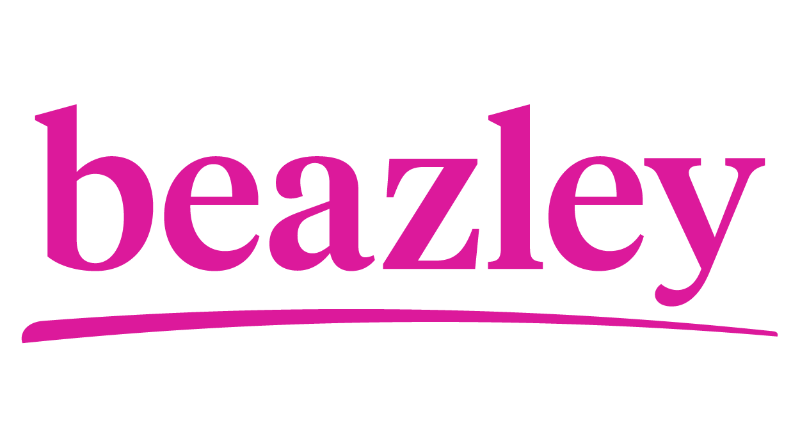Covid-19 (coronavirus) and your business
Confused about how Covid-19 affects your business insurance? Get answers at our Covid-19 FAQ.
If you have employees, protect them with Covid-19 Infection Insurance.
Compare quotes from leading insurers












Save up to 25% on premiums
Quick quotes for all products
Advisors available 7 days/wk
What is a Surety Bond?
A Surety Bond is an insurance policy that helps you ensure another party lives up to their contractual obligations. For instance, let’s say you’re a building owner who’s awarded a large refurbishment project to a contractor. You could mandate that the contractor purchases a specific type of Surety Bond, called a Performance Bond. If your contractor does not refurbish your building to the standards stipulated in your contract, the insurance company will compensate you for losses incurred. Surety Bonds are therefore a great way to ensure that contractual requirements are fulfilled.
Surety bonds are commonly used as an alternative to bank guarantees, which are quite expensive because they often require large cash collaterals as a security deposit. Cash collaterals are often dollar for dollar for the bank guarantee value, meaning to raise a bank guarantee for $500,000, you often would have to pledge a cash deposit of an equivalent $500,000 with the bank. Surety Bonds are a much more affordable way to help businesses ensure that their contract requirements are met.
How does a Surety Bond work?
To understand how Surety Bonds work, we’ll need to first establish the main parties in any bond. Surety Bonds involve 3 parties: the Obligee, the Principal, and the Surety. These terms are explained below:
1. Obligee (the client)
The obligee is the party that requires a surety bond as protection, and they can be companies, government agencies or individuals. The client will often require their contractor/vendor to carry a Surety Bond to protect the client from non-fulfillment of contractual requirements.
2. Principal (the contractor/vendor)
The principal is the contractor/vendor that the obligee requires to carry a Surety Bond. If the contractor/vendor fails to meet their contractual obligations, then the Surety Bond can be activated to compensate the client for losses suffered. The principal of a Surety Bond is typically a business that’s bidding for, or awarded a contract from someone else.
3. Surety (the insurance company)
The surety is the insurance company that issues the Surety Bond. The insurance company provides financial guarantee to the obligee that the principal will fulfill their obligations outlined in their contract. If the principal fails to meet their contractual requirements, the insurer will compensate the obligee.
Example: You own a factory and have awarded a project to another company to install complex equipment. In order to protect yourself, you require the installation company to carry a $100,000 Performance Bond. The installation company fails to install and set up your factory equipment to the required standards, causing damage to your equipment. You file a claim on the Performance Bond, citing breach of contractual requirements to set up your machinery properly. The insurer pays out the $100,000 Performance Bond to compensate you for the other party’s contractual failures.
What are the different types of Surety Bonds available?
Project owners can utilise a wide variety of different bond types to protect themselves. The key types of Surety Bonds available are:
- Performance bond: This is also referred to as a “Contract Bond”. Performance Bonds help to guarantee that the contractor meets their contractual obligations to the client by performing satisfactory work. If the contractual requirements are not met, the bond will help to compensate the client for losses. Click here for Performance Bond quotes.
- Maintenance bond: This bond protects the project owner in case any defects arise in the completed work. Such defects could be caused by poor workmanship, poor design, or substandard materials used. Click here for Maintenance Bond quotes.
- Retention bond: After a project is completed, clients typically hold onto a “retention amount” (usually between 5-10% of the contract value) to ensure that the contractor performs any required defects repair works. A retention bond replaces this retention amount, allowing contractors to free up cash flow. Click here for Retention Bond quotes.
- Payment bond: This is a type of bond that is used to guarantee that subcontractors and suppliers (who are working for the main contractor) are paid for the work and material they supply. This prevents project delays or shoddy work being done due to the main contractor delaying or refusing payment to their own sub-contractors. Click here for Payment Bond quotes. Click here for Payment Bond quotes.
- Advance payment bond: Your contractor or supplier may request for a down payment to begin work. This bond protects your down payment. In the event that your contractor or supplier cannot start work, goes bankrupt, or disappears, this bond will compensate you for your deposit. Click here for Advance Payment Bond quotes.
- Bid or tender bond: Clients will sometimes require contractors to submit bid/tender bonds during the tender process. The bid/tender bond ensures that the contractor who is awarded the project will undertake the contract based on the terms that were originally submitted.
- GST Bond: This bond is sometimes required by IRAS when you’re registering your company for GST. Click here for GST Bond quotes.
- Foreign Worker Security bond: This bond is required by MOM for all foreign workers. It ensures that employers abide by the regulations for employing foreigners. Click here for Foreign Worker Bond quotes.
- Employment Agency bond: This bond is required by MOM for all Employment Agencies. It ensures that Employment Agencies abide by the licensing requirements set out by the law. Click here for Employment Agency Bond quotes.
Do I need a Surety Bond?
Surety bonds are often required in many types of business transactions. For instance, contractors & sub-contractors taking on construction or large renovation projects will often be required to purchase Performance Bonds and/or Maintenance Bonds. Companies taking on projects for the government will also often encounter the need to purchase various Surety Bonds, which will be stated in your contract. Although Surety Bond requirements can vary widely according to the contract, most Surety Bond values typically will be about 10-15% of the total project value.
Some types of regulated businesses in Singapore also require Surety Bonds to start up. For instance, if you wish to start an Employment Agency, you’ll need an Employment Agency Bond.
Some examples of businesses that frequently need Surety Bonds include:
- Construction & renovation businesses (whether main contractors or sub-contractors)
- Businesses that work on government projects
- Businesses tendering for large projects
- Businesses in regulated sectors like employment agencies, liquor sales, etc.
What's the advantage of Surety Bonds over Bank Guarantees (BG)?
Bank Guarantees typically require much higher cash collateral than Surety Bonds. Because the cash collateral is higher, you will have to park significant sums of money with the bank. This money is stuck with the bank until the contract requirements have been fulfilled, which drains your company of cash flow. Surety Bonds typically require a much lower cash collateral (or none at all, depending on your specific circumstances), which frees up significant cash flow for your business.
How much does a Surety Bond cost?
First off, the price of a Surety Bond depends on the exact type of bond you’re looking for. For instance, Performance Bonds (one of the most popular types of Surety Bonds), start from about 1% of the required bond amount. Employment Agency Bonds also start from about 1% of the required bond amount.
Each Surety Bond is underwritten based a variety of key factors: your company’s financial strength, your obligee’s (i.e. client) financial strength, your company’s directors, and whether you’ve filed any bond claims before.
Curious about how much you could save with Provide? Contact us today using the form below, or call us at 8874 7011!